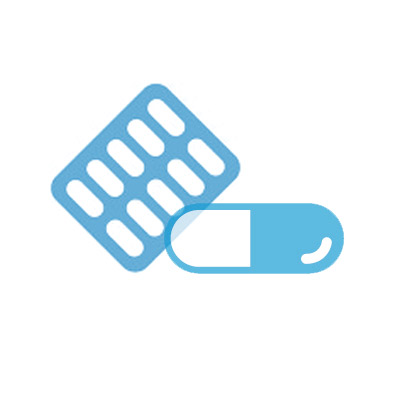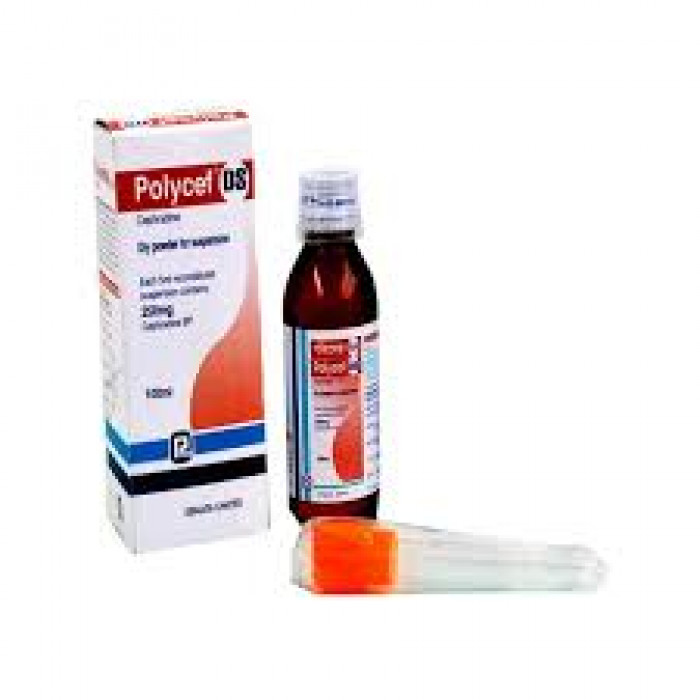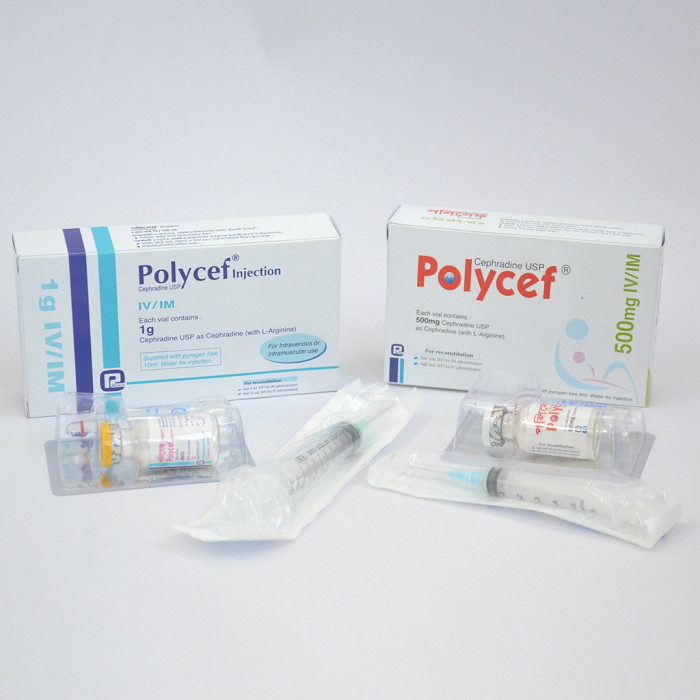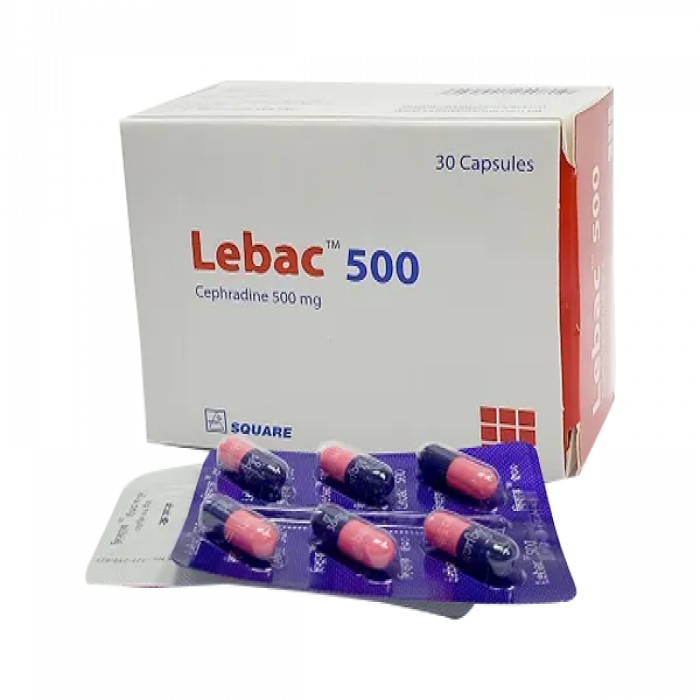Due to National Election, orders may be processed slight delay, nationwide.
Leading Online Pharmacy of Bangladesh

✔ 100% Authentic Product
👁️ Currently Viewing 1117
Cefradine, a first-generation cephalosporin, inhibits bacterial cell wall synthesis by binding to penicillin-binding proteins (PBPs), preventing the final transpeptidation step of peptidoglycan synthesis. This results in cell wall disruption and bacterial cell death. Supracef may be taken with or without food; however, taking it with meals can help minimize gastrointestinal discomfort.
Discount
Price: ৳ 88
MRP:
৳
90
2%
Off

100% Genuine Products, Guaranteed

Safe & Secure Payments, Always

Fast, Secure & Efficient Delivery

Proper Packaging
 Cash on Delivery - All over Bangladesh
Cash on Delivery - All over Bangladesh Regular Delivery - 12-24 Hours, Dhaka City* Charge Tk.39-59
Regular Delivery - 12-24 Hours, Dhaka City* Charge Tk.39-59 Regular Delivery - 24-48 Hours, Other Cities* Charge Tk.99-110
Regular Delivery - 24-48 Hours, Other Cities* Charge Tk.99-110
 ফ্রি ডেলিভারিঃ - ৯৯৯ টাকা+ অর্ডারে, ঢাকা
শহরে
ফ্রি ডেলিভারিঃ - ৯৯৯ টাকা+ অর্ডারে, ঢাকা
শহরে ফ্রি ডেলিভারিঃ - ২৯৯৯ টাকা+ অর্ডারে, ঢাকার
বাহিরে
ফ্রি ডেলিভারিঃ - ২৯৯৯ টাকা+ অর্ডারে, ঢাকার
বাহিরে
100% Genuine Products, Guaranteed
Safe & Secure Payments, Always
Fast, Secure & Efficient Delivery
Proper Packaging
 Cash on Delivery - All over Bangladesh
Cash on Delivery - All over Bangladesh Regular Delivery - 12-24 Hours, Dhaka City* Charge Tk.39-59
Regular Delivery - 12-24 Hours, Dhaka City* Charge Tk.39-59 Regular Delivery - 24-48 Hours, Other Cities* Charge Tk.99-110
Regular Delivery - 24-48 Hours, Other Cities* Charge Tk.99-110 ফ্রি ডেলিভারিঃ - ৯৯৯ টাকা+ অর্ডারে, ঢাকা
শহরে
ফ্রি ডেলিভারিঃ - ৯৯৯ টাকা+ অর্ডারে, ঢাকা
শহরে ফ্রি ডেলিভারিঃ - ২৯৯৯ টাকা+ অর্ডারে, ঢাকার
বাহিরে
ফ্রি ডেলিভারিঃ - ২৯৯৯ টাকা+ অর্ডারে, ঢাকার
বাহিরে
✅ Description:
Supracef is indicated for the treatment of pneumonia, pharyngitis, tonsillitis, otitis media, respiratory tract infections, urinary tract infections, skin and soft tissue infections, rheumatic fever, genitourinary infections, acute prostatitis, and for surgical prophylaxis against susceptible bacterial infections.
Adults:
Oral (PO): 1–2 g daily in 2–4 divided doses (maximum 4 g/day).
Surgical prophylaxis: 1–2 g before surgery; additional doses may be administered as required.
Skin/Respiratory infections: 250 mg every 6 hours or 500 mg every 12 hours.
Pneumonia: 500 mg every 6 hours or 1 g every 12 hours.
UTI: 500 mg every 12 hours.
GI infections: 500 mg three to four times daily.
IV/IM (severe infections): 2–4 g/day in four divided doses (maximum 8 g/day).
Children:
Oral: 25–50 mg/kg/day in 2–4 divided doses.
Injection: 50–100 mg/kg/day in four divided doses (may increase to 200–300 mg/kg/day in severe infections).
Surgical prophylaxis: 1–2 g via IM/IV route followed by additional doses as needed.
Renal Impairment:
CrCl >20 mL/min: 500 mg every 6 hours.
CrCl 5–20 mL/min: 250 mg every 6 hours.
CrCl <5 mL/min: 250 mg every 12 hours.
Hemodialysis: 250 mg at the start of dialysis, repeated 6–12 hours later, then 36–48 hours after the initial dose, and again at the next dialysis session if >30 hours have passed.
✔️ Side Effects:
Common side effects may include nausea, vomiting, diarrhea, dizziness, rash, pruritus, leukopenia, neutropenia, eosinophilia, and elevated BUN or creatinine levels.
✔️ Interaction
Concomitant use with loop diuretics may increase nephrotoxicity risk.
Probenecid may decrease the renal clearance of cefradine.
✔️ Contraindications:
Contraindicated in patients with known hypersensitivity to cefradine, other cephalosporins, or in those with porphyria.
✔️ Precautions & Warnings
Use with caution in patients with renal impairment or a history of penicillin allergy. Use during pregnancy and lactation only if clearly needed and prescribed by a physician.
⚠️Disclaimer:
At ePharma, we’re committed to providing accurate and accessible health information. However, all content is intended for informational purposes only and should not replace medical advice from a qualified physician. Please consult your healthcare provider for personalized guidance. We aim to support, not substitute, the doctor-patient relationship.









